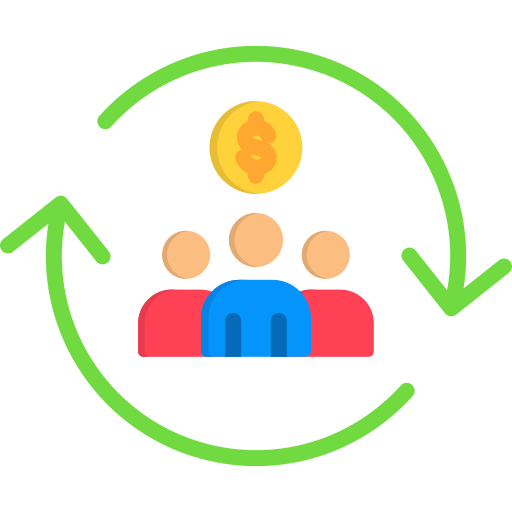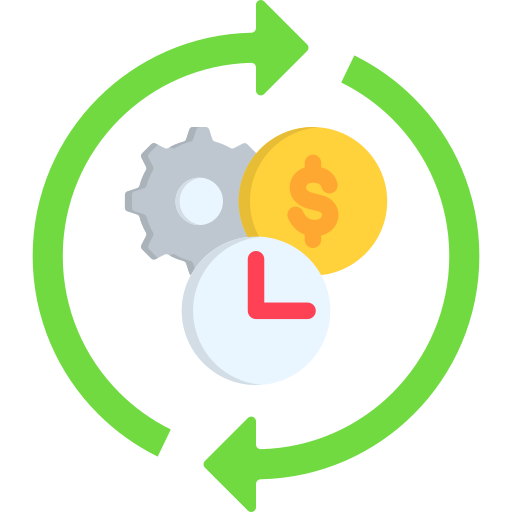
7 Ways Time Tracking Improves Teamwork & Employee Engagement
Imagine a scenario where each team member effortlessly synchronizes efforts, collaborates seamlessly, and achieves remarkable outcomes, all while feeling empowered and engaged in their work. This isn’t merely an idealistic dream, it’s the transformative power of effective time tracking in fostering unparalleled teamwork and elevating employee engagement.
In today’s work environment, where remote collaboration and flexible schedules are the norm, the significance of time tracking extends far beyond mere clocking in and out. It has evolved into a strategic tool that propels teams towards peak performance while nurturing a sense of ownership and fulfillment among employees.
This blog intends to acknowledge the two important cornerstones of an organization’s success – employee engagement and teamwork. And the fusion of time tracking stands as a pivotal catalyst in fortifying teamwork dynamics and kindling a renewed enthusiasm for work among employees.
So, join us as we delve into the seven pivotal ways in which time tracking serves as the cornerstone for bolstering teamwork dynamics and igniting a newfound zeal for work among employees.
What is Employee Engagement?

According to Forbes, Employee engagement is the level of dedication exhibited by employees towards the company, encompassing their commitment to its objectives and goals. It’s about how invested and passionate employees are about their jobs and how much effort they are willing to put in to contribute to the success of the company. Engaged employees are more likely to be productive and higher performing. They are also more likely to stay with their company and be positive ambassadors for the brand.
The Impact of Employee Engagement
Engaged employees are the bedrock of a thriving workplace.
 Their sense of duty and pride in their job position propels them to work harder, think innovatively, and strive for excellence.
Their sense of duty and pride in their job position propels them to work harder, think innovatively, and strive for excellence.
 Their commitment doesn’t dwindle with the clock; instead, it drives them to go the extra mile, ultimately contributing to the organization’s success.
Their commitment doesn’t dwindle with the clock; instead, it drives them to go the extra mile, ultimately contributing to the organization’s success.
 It inspires and motivates other workers, creating a domino effect of positivity throughout the workplace.
It inspires and motivates other workers, creating a domino effect of positivity throughout the workplace.
 Their commitment and passion for their work infuse a renewed energy into their tasks, leading to heightened productivity levels.
Their commitment and passion for their work infuse a renewed energy into their tasks, leading to heightened productivity levels.
 Engaged employees feel valued and appreciated, leading to a sense of fulfillment in their roles. This satisfaction isn’t confined to the individual but resonates across the team and organization, fostering a positive and supportive work culture.
Engaged employees feel valued and appreciated, leading to a sense of fulfillment in their roles. This satisfaction isn’t confined to the individual but resonates across the team and organization, fostering a positive and supportive work culture.
Importance of Teamwork

Teamwork’s significance permeates through every layer of a company, shaping its culture, work productivity, and overall success. It allows individuals with diverse skills, perspectives, and expertise to collaborate seamlessly towards a common objective. Let’s look at how teamwork fosters company’s success.
 The pool of varied talents within a team often leads to innovative solutions, as different viewpoints converge, sparking creativity and out-of-the-box thinking
The pool of varied talents within a team often leads to innovative solutions, as different viewpoints converge, sparking creativity and out-of-the-box thinking
 A cohesive team embodies a shared vision and purpose, aligning individual efforts with broader organizational objectives.
A cohesive team embodies a shared vision and purpose, aligning individual efforts with broader organizational objectives.
 Each member contributes their strengths, complementing one another’s abilities and compensating for weaknesses, boosting morale and motivation.
Each member contributes their strengths, complementing one another’s abilities and compensating for weaknesses, boosting morale and motivation.
 By distributing tasks among team members based on their skill sets, organizations optimize efficiency and achieve higher output within shorter time frames.
By distributing tasks among team members based on their skill sets, organizations optimize efficiency and achieve higher output within shorter time frames.
 It allows for the specialization of roles, enabling individuals to focus on areas where they excel, leading to higher quality work.
It allows for the specialization of roles, enabling individuals to focus on areas where they excel, leading to higher quality work.
 Effective teamwork facilitates flexibility and agility, empowering organizations to navigate challenges and capitalize on opportunities more effectively.
Effective teamwork facilitates flexibility and agility, empowering organizations to navigate challenges and capitalize on opportunities more effectively.
 Teamwork encourages knowledge sharing and continuous learning within an organization, fostering a culture of growth and development.
Teamwork encourages knowledge sharing and continuous learning within an organization, fostering a culture of growth and development.
What is Time Tracking And How Does It Work?
At its core, time tracking involves the systematic recording and analysis of work hours spent on various activities, projects, or tasks.
How Does Time Tracking Work?
1. Automated Time Tracking
A time tracking tool tracks the work hours accurately categorizing them as productive, non-productive, idle, offline, and private
2. App & URL Tracking
Tracks the apps used and URLs visited to ensure employees are focused on work-related tasks and avoid using company resources for personal activities.
3. Shift Management
Create, schedule, track and manage employee shifts easily with a time tracking software and generate reports on employee attendance, overtime, and labor costs.
4. Attendance Management
Track employee presence and absence in the organization. It also records employee clock-in and clock-out times, ensuring accurate payroll calculations.
Fostering Employee Engagement and Teamwork
Implementing time tracking systems yields several benefits that positively impact both employee engagement and teamwork

Clarity and Accountability
Time tracking establishes clear expectations by outlining tasks and deadlines. This transparency ensures everyone understands their responsibilities, promoting accountability and engagement in meeting shared goals.

Collaborative Environment
Time tracking tools foster collaboration by providing visibility into each team member’s workload and progress. This visibility allows for better coordination, helps in resource allocation, and encourages teamwork by understanding each other’s contributions.

Efficient Resource Management
These systems enable efficient allocation of resources by tracking time spent on tasks. It aids in identifying where resources should be directed, ensuring optimal productivity and reducing wastage.
Several time tracking tools are widely used in businesses today, catering to various needs and preferences. Time tracking tools like Statily, Desklog, Toggl, Harvest etc, offer intuitive interfaces, mobile applications, and integrations with other productivity software, making time tracking seamless and accessible for teams.
Now let’s look at how time tracking fosters teamwork and enhances employee engagement.
7 Ways Time Tracking Enhances Teamwork
1. Task Allocation and Resource Management
Time tracking allows for a precise understanding of how much time different tasks require. This data aids in distributing tasks more effectively among team members based on their availability, expertise, and workload. It ensures a balanced allocation of responsibilities, optimizing resource management and fostering a more cohesive team effort
2. Improved Communication and Collaboration
Through time tracking tools, team members can better coordinate their efforts. They can see each other’s progress, deadlines, and workload, facilitating smoother collaboration. It encourages open communication about task statuses, deadlines, and potential challenges, leading to a more synchronized team effort.
3. Optimized Workflow Efficiency
Time tracking facilitates the identification of workflow inefficiencies and streamlines processes. By analyzing time data, teams can restructure workflows, prioritize tasks effectively, and optimize processes, leading to improved overall efficiency in teamwork. This optimization fosters a collaborative environment focused on achieving common goals.
4. Real-time Monitoring and Feedback
Time tracking provides real-time insights into ongoing tasks and projects. This allows team leaders or managers to monitor progress and provide timely feedback. It helps in addressing issues promptly, ensuring that the team stays on track, and adjustments can be made if necessary, leading to improved teamwork efficiency.
5. Identifying and Resolving Bottlenecks
By analyzing time tracking data, teams can pinpoint areas where work processes slow down or encounter obstacles. This identification of bottlenecks enables teams to collaboratively brainstorm solutions and implement strategies to overcome these hurdles. Resolving bottlenecks collectively enhances overall team productivity.
6. Enhanced Accountability
Time tracking promotes accountability among team members. When everyone is aware that their work hours are being recorded, it fosters a sense of responsibility for their tasks and deadlines. This accountability encourages individuals to contribute effectively to the team, fostering a culture of reliability and commitment to shared goals.
7. Performance Evaluation and Improvement
Time tracking data serves as a valuable resource for performance evaluation. It allows teams to assess individual and collective productivity, facilitating data-driven discussions on areas of improvement. This collaborative approach to performance enhancement leads to shared goals for better productivity and efficiency within the team.
7 Ways Time Tracking Boosts Employee Engagement
1. Work-Life Balance
Efficient time tracking aids in maintaining a healthy work-life balance by ensuring employees are not overburdened with excessive work hours. This balance fosters higher job satisfaction, directly impacting overall employee engagement and commitment to the organization.
2. Recognition and Rewards
Accurate time tracking allows for better assessment of employees’ efforts and productivity. This data enables fair recognition and rewards for their hard work, creating a sense of appreciation and reinforcing employee engagement with the company’s goals.
3. Professional Development Opportunities
Insight gained from time tracking data helps identify areas where employees excel or require improvement. This information can be used to offer targeted professional development opportunities, demonstrating the company’s investment in their growth and increasing their engagement levels.
4. Reduced Burnout and Stress
Proper time tracking aids in workload management, preventing excessive stress and burnout. By ensuring realistic workloads and manageable schedules, employees experience reduced stress levels, leading to improved workforce engagement and commitment to their roles.
5. Clear Performance Expectations
Transparent time tracking practices establish clear performance expectations. When employees have a clear understanding of what’s expected, they feel more engaged, motivated, and aligned with organizational objectives.
6. Flexibility and Remote Work
Effective time tracking enables the assessment of productivity levels regardless of work location. This flexibility in tracking work hours encourages a more autonomous work environment, fostering higher employee engagement, especially in remote or flexible work setups.
7. Employee Empowerment
By allowing employees to track their time and manage their schedules effectively, time tracking tools empower them to take ownership of their work processes. This empowerment leads to increased employee engagement as they feel more in control and responsible for their contributions.
Conclusion
Through the lens of time tracking benefits, we’ve uncovered the transformative impact it has on both individual contributions and collective synergy within a workforce. Take the first step towards enhancing your team’s performance and elevating employee engagement. Let’s pave the way for a future where teamwork thrives, and every employee feels inspired and engaged in contributing to the collective success of the organization.
Comments